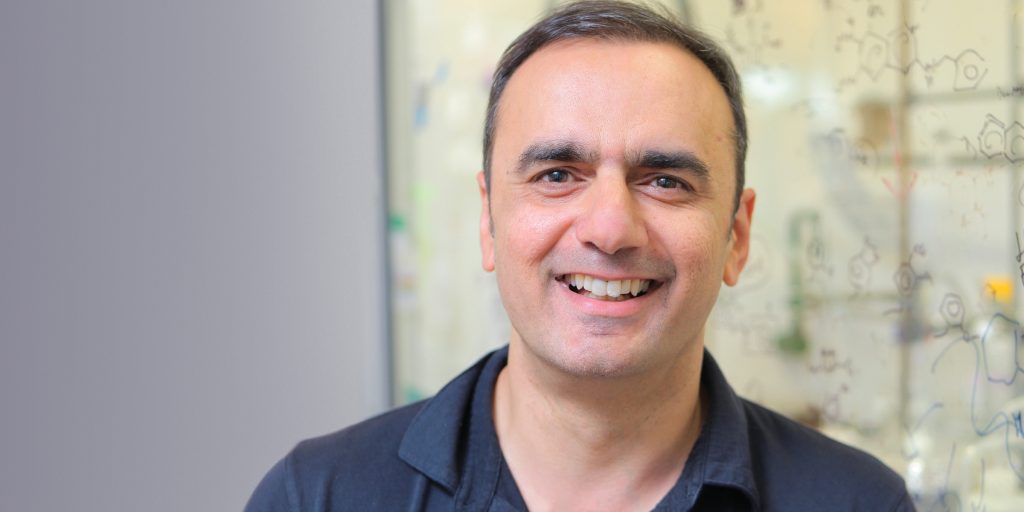

The Kapoor lab is developing drug-like chemical inhibitors of viral helicase enzymes to be used as probes to analyze the functions of these viral enzymes, analyze synergies with any available therapeutics and provide leads for developing new antiviral therapies against existing and new coronavirus and enterovirus helicase variants.
A second project, led by Dr. Linas Urnavicius in Dr. Kapoor’s lab, will develop a rigid molecular anchor to bind viral proteins and effectively increase their size to a range that is suited to cryo-electron microscopy studies. This method will be used to study a poliovirus enzyme as a model to understand how this viral helicase binds its RNA substrate and how drug-like compounds can inhibit its functions, thus uncovering basic biological mechanisms and facilitating the design of new treatments for current and emerging pathogens.

Kapoor’s lab studies the molecular mechanisms required for accurate propagation of genetic material during cell division, with the goal of developing new therapies to treat cancer. Research in the lab has two areas of focus: discovering and developing new tools to probe protein function, and using them to dissect dynamic cellular processes such as cytoskeleton organization and cell division.